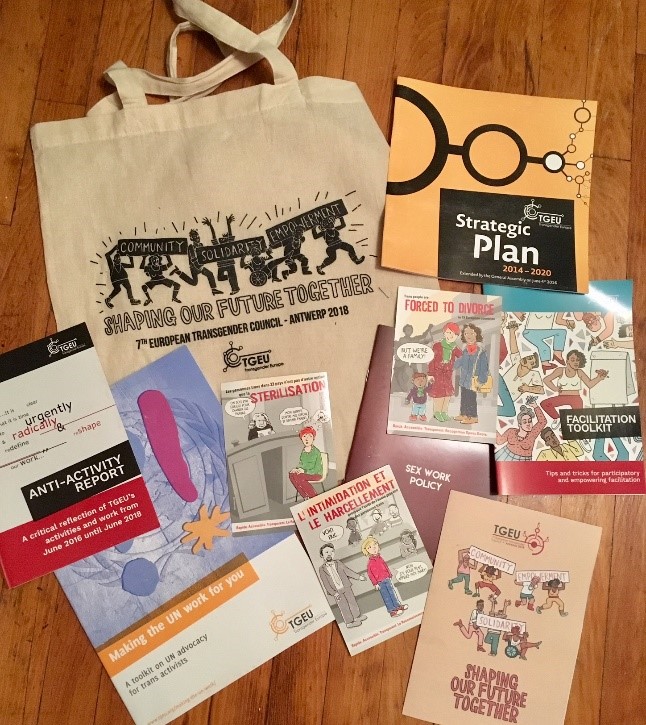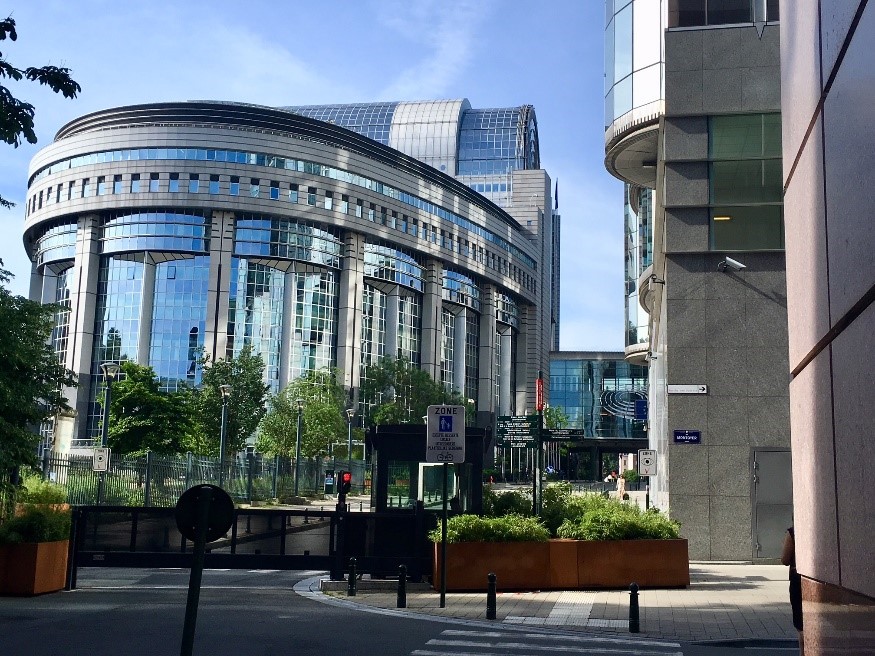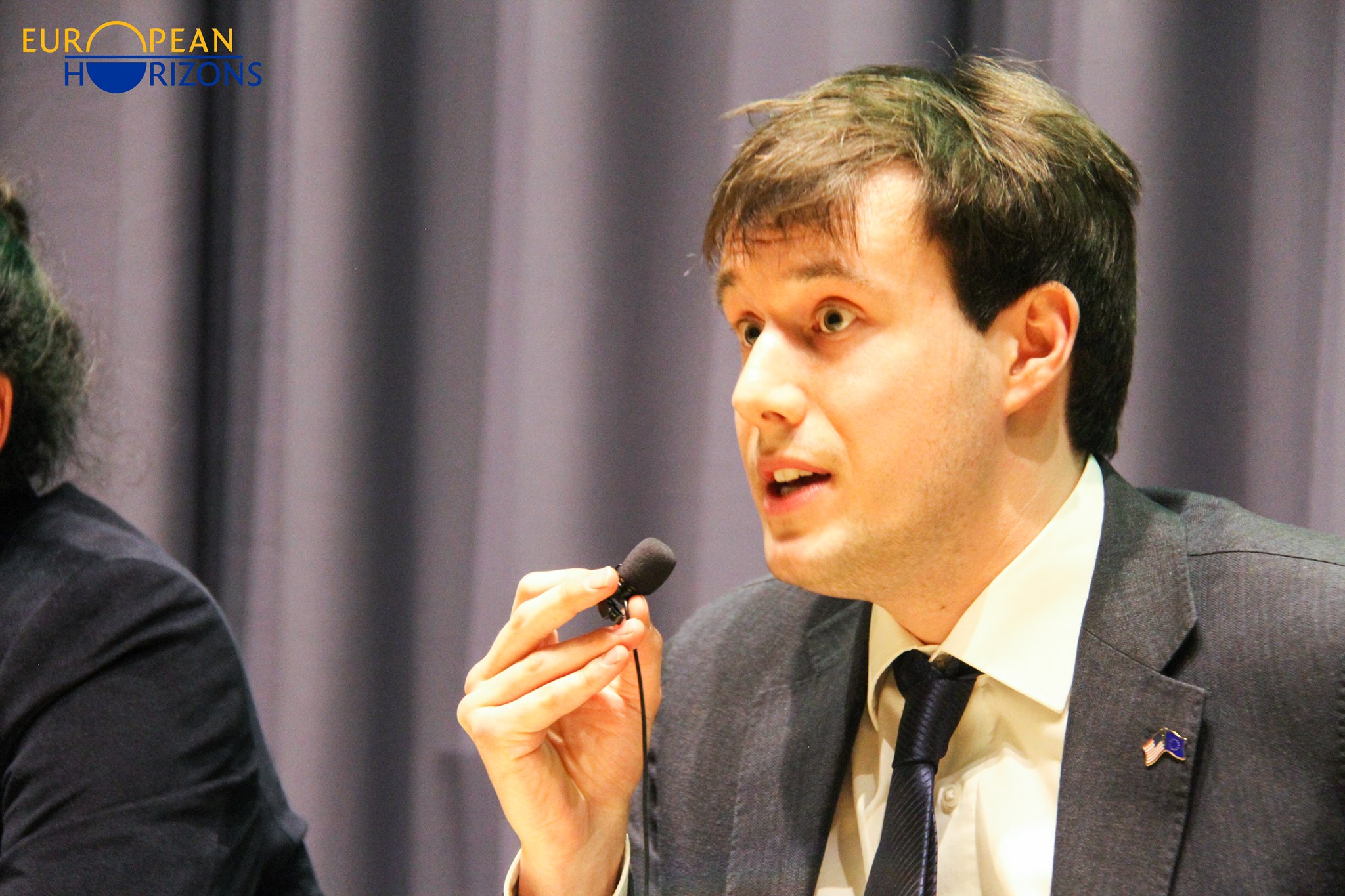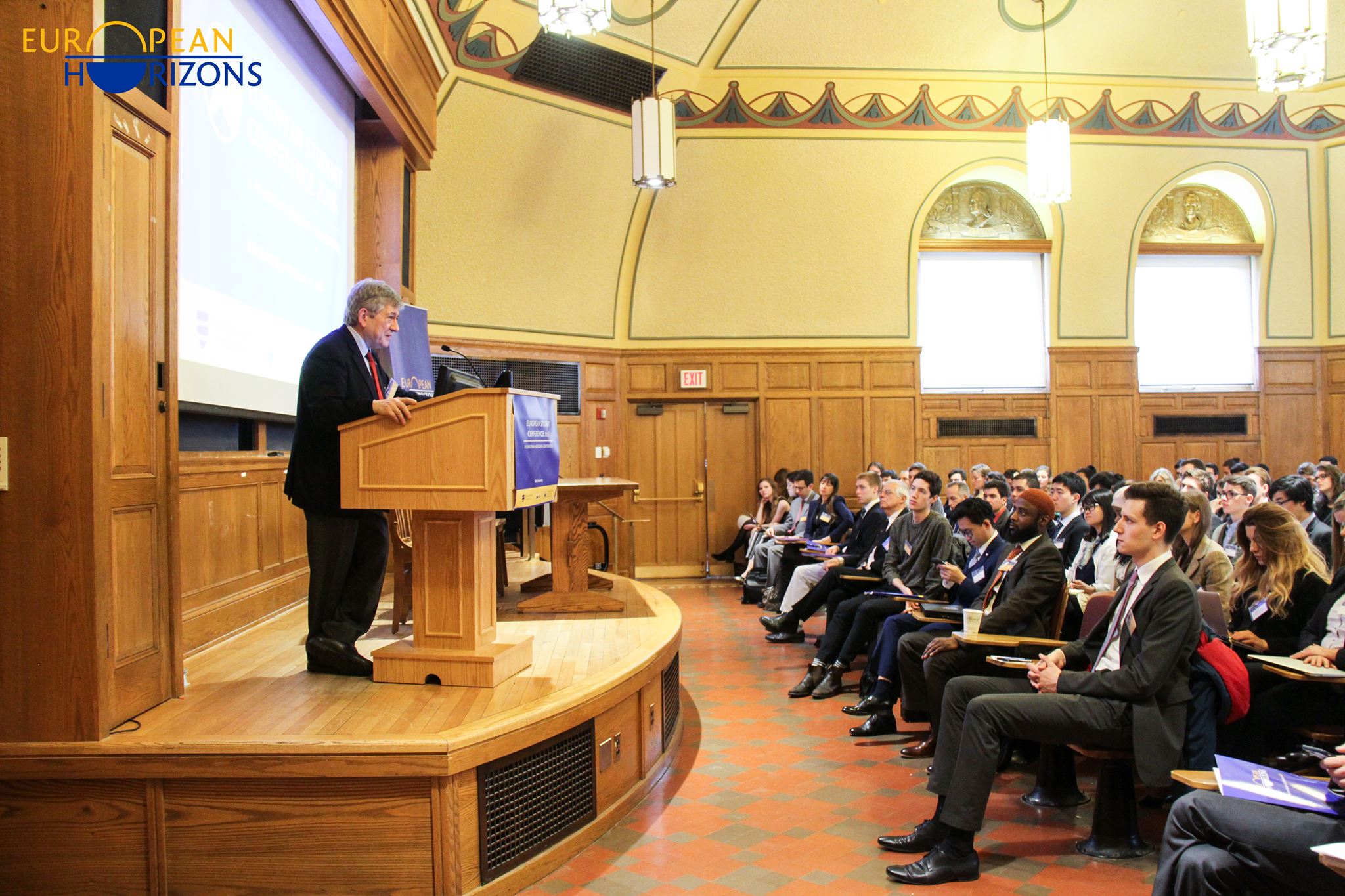Amery Sanders is a MAIR student focusing on human rights.
From May 25th through July 14th, I lived and worked in Brussels as part of Syracuse University’s Public Diplomacy program. While not a Public Diplomacy student myself—I’m a graduate student pursuing the MA International Relations (MAIR) degree—I chose the Brussels program for its abundance of opportunities in my interest areas of human rights, diplomacy, and international NGO work. I was incredibly fortunate enough to secure an internship at the Brussels seat of the European Parliament, one of the three core legislative institutions of the European Union. I served as a trainee in the office of dynamic Finnish MEP Sirpa Pietikäinen.

I reached out to MEP Pietikäinen’s office because of her work in the leadership of the European Parliament’s Intergroup on LGBTI Rights, a coordinated cross-party effort by MEPs to advance and support the rights of LGBTI people. As a queer graduate student with a professional and academic focus in international transgender human rights, securing a place in her office meant I was able to work right at the heart of the European Union’s LGBTI-centric activities while also gaining in-depth understanding of EU institutional and legislative work.
During my seven weeks in Brussels, I split my time between doing administrative work for the MEP, working with Intergroup Secretariat Juliette Sanchez-Lambert, and doing research around the MEP’s special interest areas of queer freedom of movement, employment discrimination, partner and family rights, health care discrimination, and asylum rights. I attended Parliament events around LGBTI issues and was privileged to be able to attend the 7th European Transgender Council, an annual conference hosted by TGEU, the largest transnational member organization of transgender activists in Europe. Over the course of the internship I worked to develop a reference packet on individual LGBTI topics, to be used by MEPs and other officials as a resource guide in the lead up to the 2019 parliamentary elections. Of especial significance to me personally, I was asked to give critical feedback on the Fundamental Rights Agency’s EU LGBT Survey; my critiques and suggestions were taken to a Vienna meeting to help determine the structure and content of the next version of the survey.

Brussels was a city both beautiful and politically complex, and I was deeply satisfied by my time there—by the work I was able to do, the connections I was able to make, and the knowledge I was able to gain. I feel like I was able to get exactly the glimpse “behind the curtain” of transnational LGBTI-centric rights work that I have heretofore been unable to access. It’s re-energized me in a way I could only have hoped for, and which I think will serve me well as I go forward in my academics and my career.





